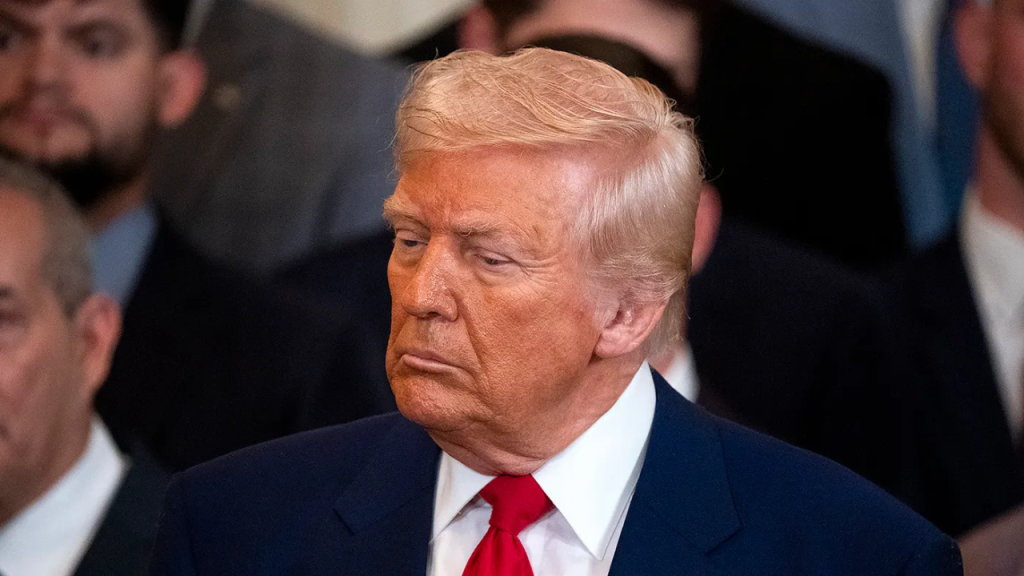
President Donald Trump is facing serious legal pushback after floating the idea of sending violent American criminals to foreign prisons—specifically, to El Salvador’s infamous CECOT mega-prison.
This idea came up during his meeting with El Salvador’s President Nayib Bukele, where Trump praised the facility and called for more prisons to be built to handle not just foreign criminals, but also “homegrown” violent offenders from the U.S.
“If it’s a homegrown criminal, I have no problem,” Trump told reporters. “I’m talking about really bad people—every bit as bad as the ones coming in.”
Even before the media entered the room, Trump reportedly encouraged Bukele to consider building additional prisons because the existing one wasn’t “big enough” for all the criminals he hoped to send there.
He added that the administration is “studying the laws” to explore the possibility, while still claiming they would “obey the law.”
This isn’t the first time Trump has floated this idea. Back in February, he made a similar comment, again noting that legal checks would be necessary.
Legal Experts Are Alarmed
Legal scholars and constitutional experts were quick to call out the idea as dangerous and unconstitutional.
David Leopold, former president of the American Immigration Lawyers Association, said, “Citizens cannot be deported. Period. The U.S. is the home of its citizens—there’s no legal way to send them abroad to serve time.”
Michael Gerhardt, a constitutional law professor at the University of North Carolina, backed this up, pointing to multiple constitutional provisions that would make such a move illegal.
Amanda Frost, a law professor at the University of Virginia, agreed, saying that even if someone commits a horrible crime, “they’re Americans, they remain here.”
Deporting them would violate their fundamental rights, including protections under the Eighth Amendment, which bans cruel and unusual punishment.
Could Naturalized Citizens Be Targeted?

One rare exception could be naturalized U.S. citizens. If someone gained citizenship through fraud or committed acts like treason, their status can be revoked.
But experts warn that even in those cases, deportation would only be legal after a separate legal process, not simply because of unrelated criminal activity.
“If someone’s a naturalized citizen, there could be an effort to denaturalize them. But that has to be based on fraud during the naturalization process, not for committing an unrelated violent crime,” Frost explained.
Officials Give Vague Responses
Despite Trump’s repeated remarks, his administration has avoided directly answering whether such deportations would be legally possible.
When asked on Fox News, Attorney General Pam Bondi said Trump was simply trying to keep Americans safe and added, “If we have to build more prisons here, we will.”
White House Press Secretary Karoline Leavitt also sidestepped the legal question, saying it’s something “the president is looking into.”
Trump specifically mentioned criminals who “push people into subways” or “hit elderly ladies on the back of the head” as examples of the types of violent offenders he believes should be dealt with harshly.
A Chilling Precedent?
The controversy comes as a legal case involving Kilmar Abrego Garcia plays out. Garcia, an American who was allegedly wrongly deported to CECOT by the Trump administration, has been caught in a legal tug-of-war.
The Supreme Court has ruled that the U.S. must facilitate his return, stating he was deported illegally. However, Bondi said it’s “up to El Salvador” to send him back, and President Bukele has refused.
“That is chilling,” Frost said. “If their attitude is that once someone is out of the country, there’s nothing they can do, then it opens the door to terrible abuse.”
Rachel Scott of ABC News asked Trump’s immigration advisor Tom Homan if this was even legal. He responded that he hadn’t yet spoken to Trump about it.
David Leopold summed up the sentiment among legal experts: “The idea of a U.S. president so casually talking about deporting American citizens is both terrifying and absurd.”
